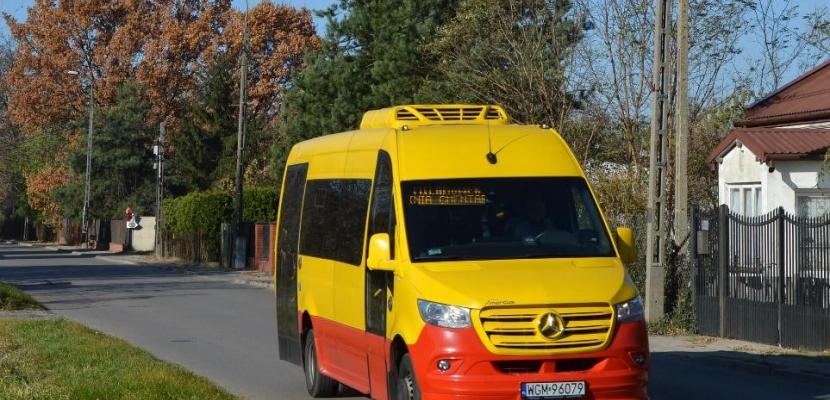
Increasing the accessibility of public transport during a Covid-19 pandemic

About this good practice
The small town of Milanówek, organises local public transport consisting of two bus lines. The role of bus system concentrates on fulfilling local needs.
Covid-19 pandemic was challenge for small local bus system. Sanitary restrictions quickly caused rapid decrease of number of passengers, which made keeping service questionable. In March and April 2020 according to national law most facilities were closed. Home office and online trading became popular.
In many public transport networks in Poland limits led to cancel courses, lines or even suspend all services for at least one month. Incomes from tickets dropped even by 60%, and number of passengers – by 40%.
The Town Hall of Milanówek decided not to cancel courses even in the pitch of lockdown and not to postpone activities aiming to develop the system. Thanks to that, cooperation with neighbouring authorities has started and lines in Milanówek were incorporated into system created jointly by all authorities within limits of Grodzisk Mazowiecki county. Also a frequency increased, which helped to keep social distance on buses.
Cooperation made quick and successful applying for funds possible. Local public transport system in Milanówek since 1st January 2022 is much more advanced (higher frequencies, new transfer possibilities, new destinations) and modern (new low floor buses) than before pandemic. It’s ready to greet passengers going back to everyday routine after hard time of pandemic, and even attract new passengers!
Resources needed
70000 EUR
Evidence of success
Vehicle-kilometres raised from 80,000 to 260,000.
Yearly costs dropped 25%
Improvement of the fleet – all lines served by new, low entry, air conditioned and environmental friendly (Euro VI) buses
The twice higher frequency, tarrifly integrated with regional transport of Grodzisk Mazowiecki county.
The higher frequency which help to keep social distance on buses
Potential for learning or transfer
In evaluating public transport services more factors than simple cost-revenue balance should be taken into account. Especially in small towns number of passengers and tickets incomes are much below profitability – yet, it shouldn’t be an argument to reduce or cancel service, because it disbalances local transport system, leads to deepening transport exclusion and causes problems indirectly connected with transport, like worse access to facilities, especially for people who can’t use their own cars.
The strenght of cooperation – together with neighbouring authorities, it’s easier to share responsibility, costs and create rich offer to passengers. Total costs drops, when services are contracted together and give contractors more opportunities to optimise. That’s why all cooperating authorities ended with much higher frequencies on their lines with the same total cost – but much lower vehicle-kilometre cost. Also capacity to obtain external funds was much higher thanks to cooperation.
Good practice owner
You can contact the good practice owner below for more detailed information.